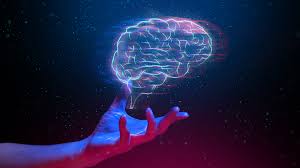Source: analyticsinsight.ne
The quest for making machines, to think, and act like humans has evolved from movie-fiction to real-world applications. Yet we are far from replicating the cognitive thinking of humans with accuracy and precision. Although the bots, cobots, robots, humanoids, and digital humans can either outplay or coordinate with us in many ways, unlike human intelligence, they need to be fed with data regularly. While our minds cannot beat machines in terms of computational power and speed of execution, the level of complex cognitive skills still makes us superior to the machines. The programmed and trained models fail when it comes to making a rational decision. This where a lot of work needs to be done as we need a holistic human approach for real-world situations in the future.
The learning process never happens in the spur of the moment. It requires the steady practice of absorbing information and processing it and eventually adds up to our experience, which again differs among individuals. One of the cognitive psychologists at Harvard, Elizabeth S. Spelke, uses behavioral methods and laboratory-based tasks to investigate the concepts and reasoning of infants, children, and adults. According to her, while infants are no match for AI, there are things that they can do beyond the reach of AI. Despite being terrible at labeling images, hopeless at mining text, and awful at a videogame, just after few months, they start to understand how the physical world works and grasp the foundations of language, such as grammar. And a couple of years later, they can extract knowledge, recognize objects, employ cognitive thinking, extrapolate motion, develop mathematical skills, understand the cause and effect of things around them, acquire abstract concepts from its surrounding. This is what surprises Spelke and other experts pondering about how babies learn. Finding this can help us design better AI.
François Chollet, a well-known AI engineer and the creator of Keras, says, “What makes human intelligence special is its adaptability, i.e., its power to generalize to never-seen-before situations,” In his November research paper, he advises not to measure machine intelligence solely according to its skills at specific tasks. “Humans don’t start with skills; they start with a broad ability to acquire new skills,” he says. “What a strong human chess player is demonstrating isn’t the ability to play chess per se, but the potential to acquire any task of similar difficulty. That’s a very different capability.” He designed a series of puzzles to test AI ability to learn in a generalized environment. Each puzzle problem requires arranging colored squares on a grid-based on just a few previous examples. While it is barely a ‘challenge’ for humans, AI has managed to reach a max of only 12 percent accuracy by April.
Scott Robinson, a SharePoint, and business intelligence expert based in Louisville, Kentucky, precisely points out, saying, “Business processes involve intelligent thought and intelligent behavior. AI is great at replicating intelligent behavior, but intelligent thought is another matter. We don’t fully understand how intelligent human thoughts develop, so we’re not going to build machines that can have them anytime soon.”
While it is established that AI is not a ‘see once and always remember’ learner like humans, there are also a few more flaws that differentiate it from us. In a recent paper titled The Rhetoric and Reality of Anthropomorphism in Artificial Intelligence, the author highlights that the neural network of AI can be easily fooled. Plus, these networks may give faulty interpretations even when there are some minor tweaks in the data stimulus. These are the areas that demand a huge volume of innovation, engineering, and research before we devise a version of AI that is more similar to a human brain or human intelligence. Then maybe we can debate on man vs. machine intelligence.
